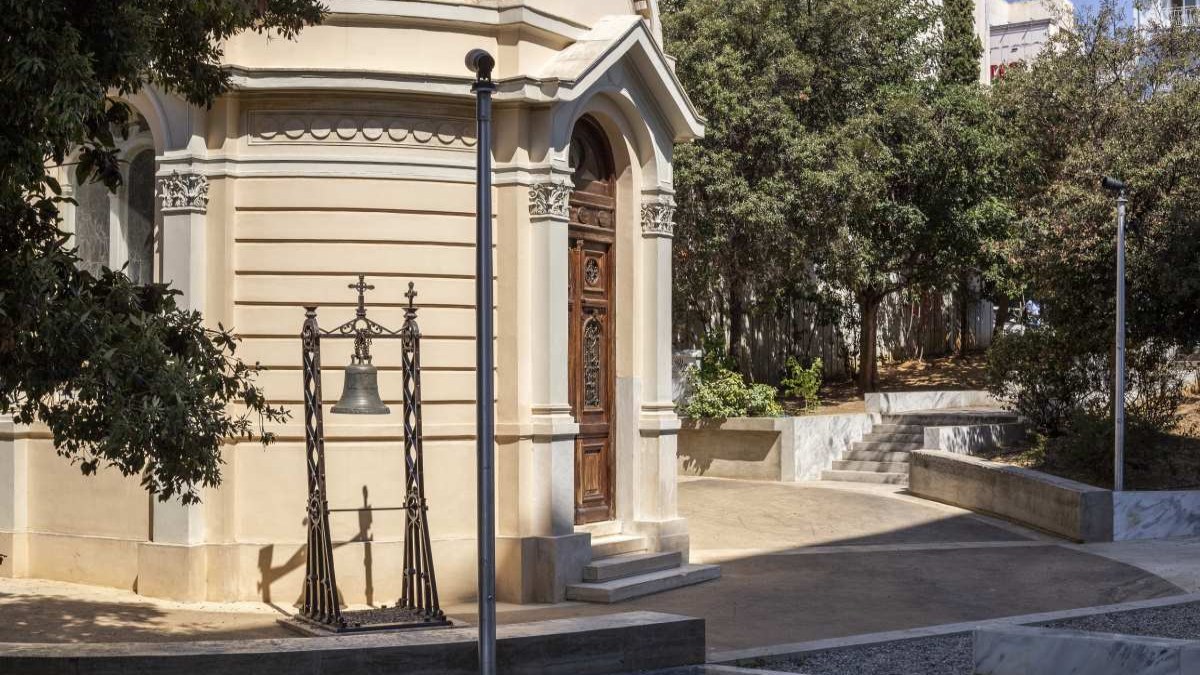An important monument of Athens and a rare example of the 19th-century architecture, the church of St. Nicholaοs Thon, at the intersection of Alexandra and Kifissia avenues, has been restored by the Ministry of Culture and Sports for the Athenians and the Parish of St. Demetrios of Ampelokipi.
Unfortunately, until its restoration, the church was “unseen” and vandalized, with a plethora of articles referring to its poor condition. Now, however, this great monument is turning a page and rediscovers its glory, which it had when its founder, Nikolaos Thon.
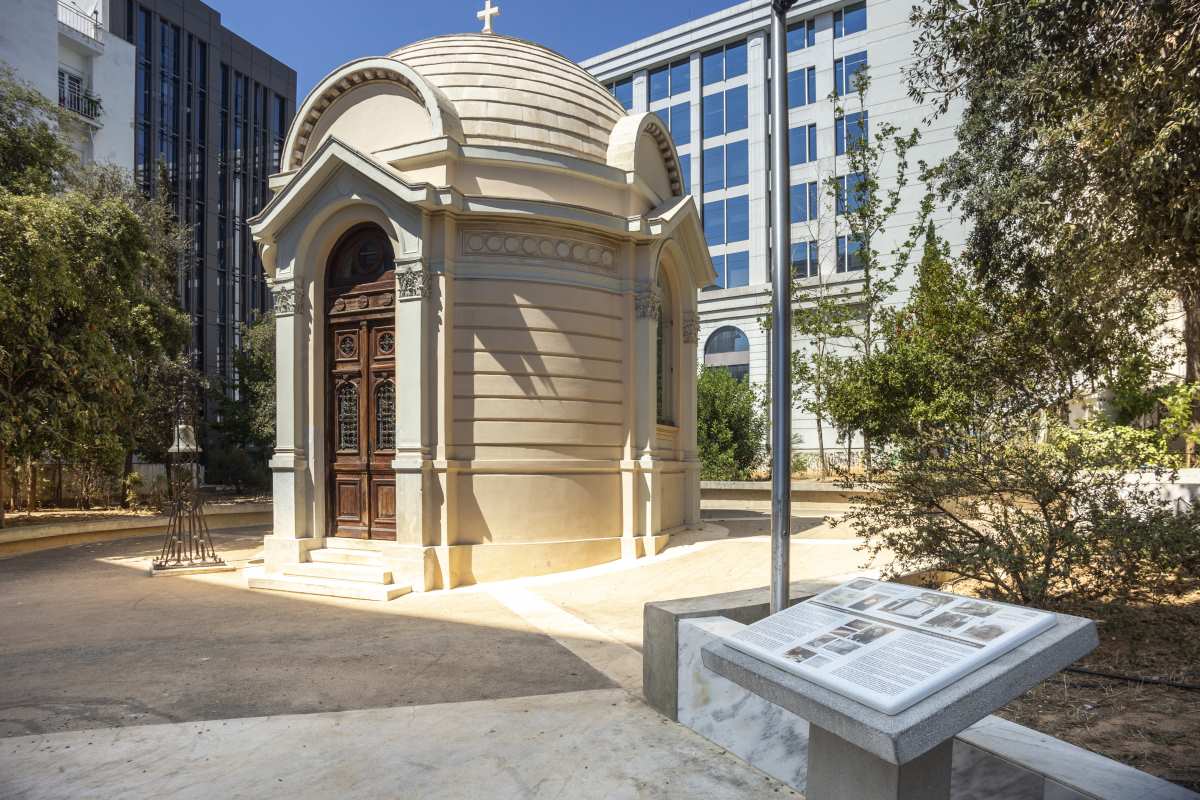
The church of Agios Nikolaos Thon, by decision of the Ministry of Culture in 1979, is a declared historical monument. It is a dome-shaped perimeter building, with the semicylindrical arch of the sanctuary in the northeast. Extensive conservation work has revealed its original geometric decoration and frescoes, and restored the wooden windows, doorway and ornate stained-glass windows, said to have been brought by Thon from Russia. Extensive restoration work has been carried out, as well as salvage conservation work. The surrounding area was also landscaped and information signs were installed.
A three-dimensional mapping of the entire monument was made with the help of a laser scanner, while all the embossed architectural elements were mapped using a photogrammetric method with the help of optical scanners. Even the carved bell tower on the outside of the temple was preserved.
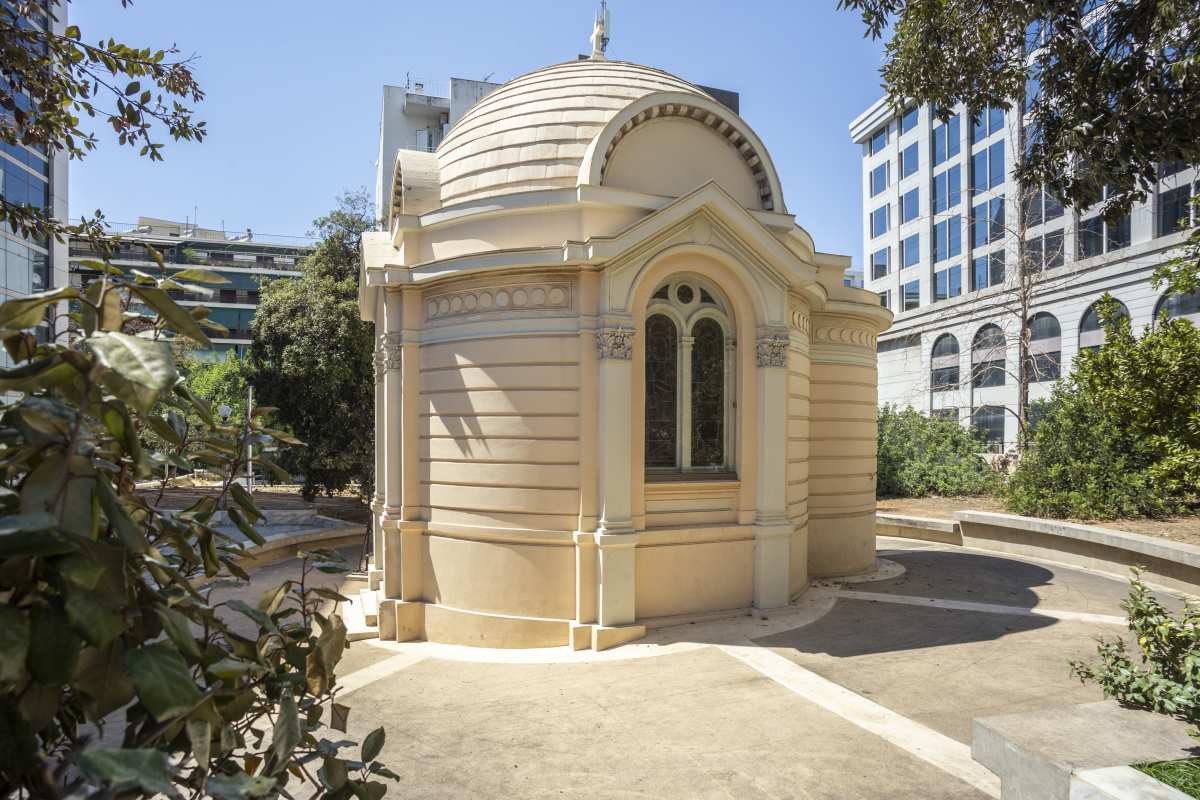
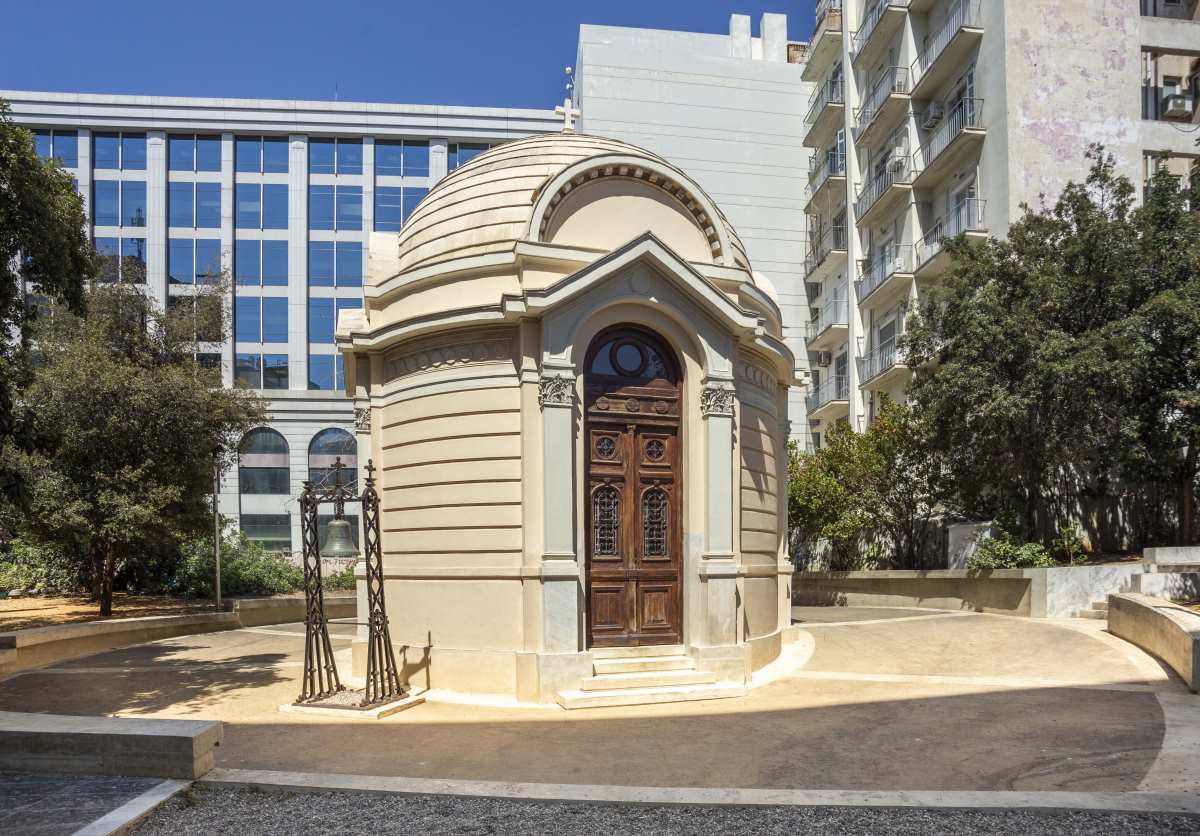
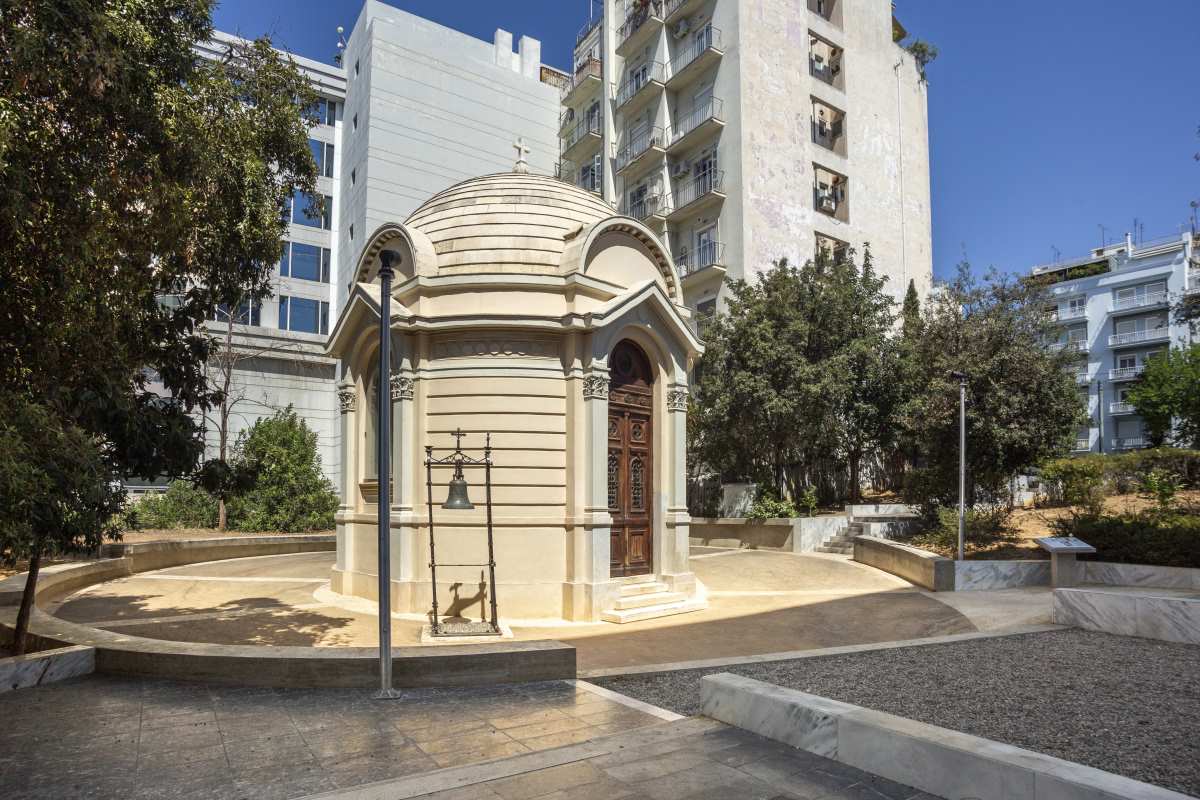
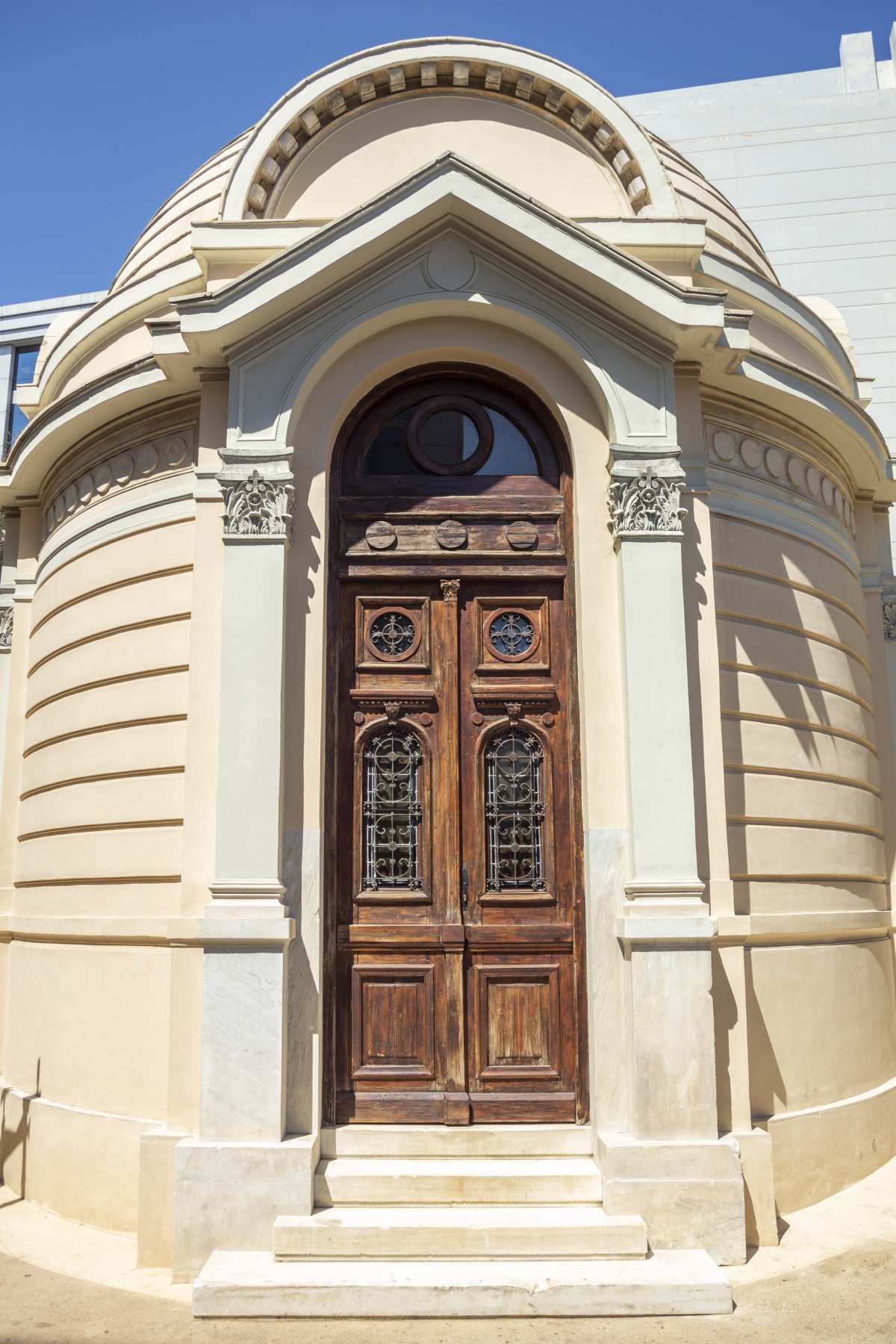

The church of St. Nicholas is the only remnant preserved today of the buildings of the “Mon Caprice” mansion of the church’s patron, Nicholas Thon, court courtier and curator of the Royal Grant of George I and director of the Royal Theatre. The mansion, built to plans by the architect Anastasius Metaxas – and not by Chiller as was attributed until recently – was surrounded by a large garden with dense vegetation, decorated with sculptures by Georgios Brutus and Georgios Fytalis, and numerous busts of fighters, philhellenes, politicians, etc.
It was inaugurated on 26 March 1895, in the presence of distinguished guests. Its outer surface is formed plastically, with horizontal parallel bands separated by scotches, and at the upper level a zone of ectopic circular elements is formed. The openings of the temple are flanked by pilasters with Corinthian-style plastered capitals, while the two opposite windows have remarkable stained-glass windows (stained-glass windows) of a Russian workshop.
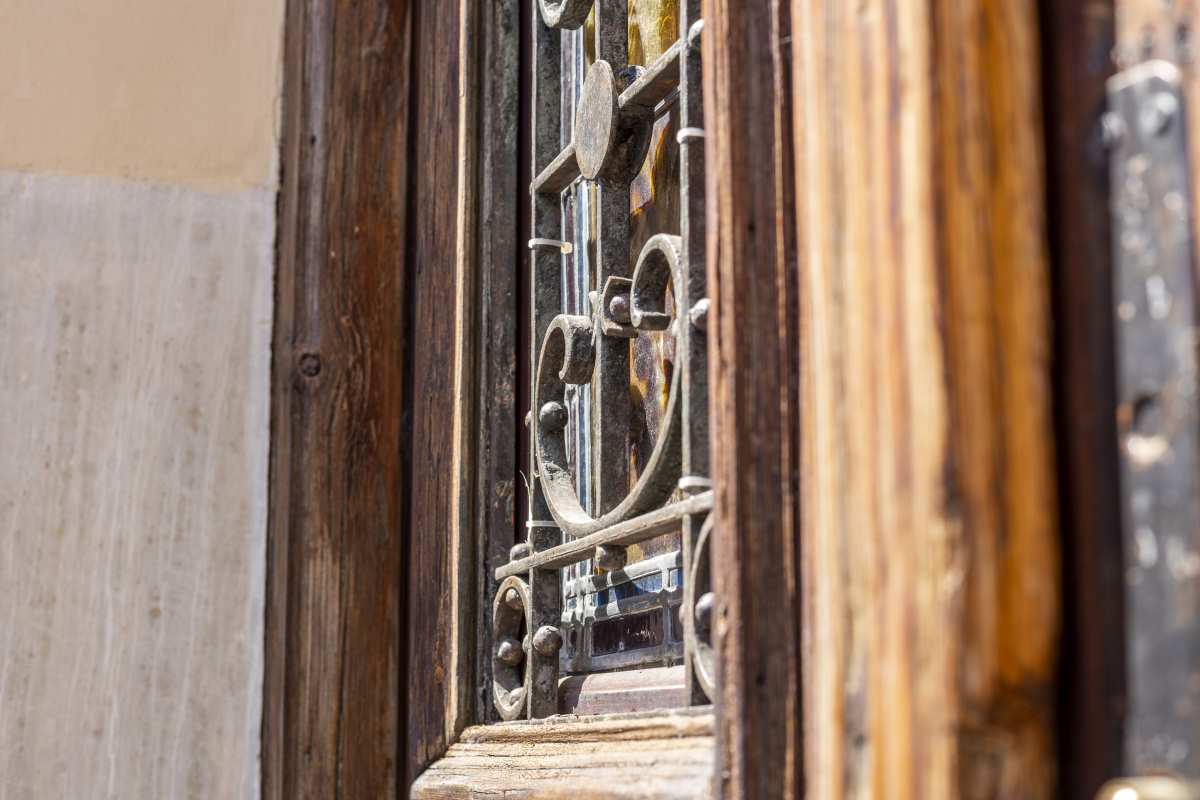
The exterior colouring, where only local traces remaining today, with variations in shades and imitation marble veining, highlights even more the meticulous construction of the temple and its elegance.
The interior of the temple is decorated using the al secco technique in zones, with the lower one imitating orthomarble. The dome depicts the Pantocrator between the evangelists and the prophets, the niche the Virgin Mary in her infant state and the Annunciation on either side of her. The sanctuary is separated from the main church by a wooden iconostasis.
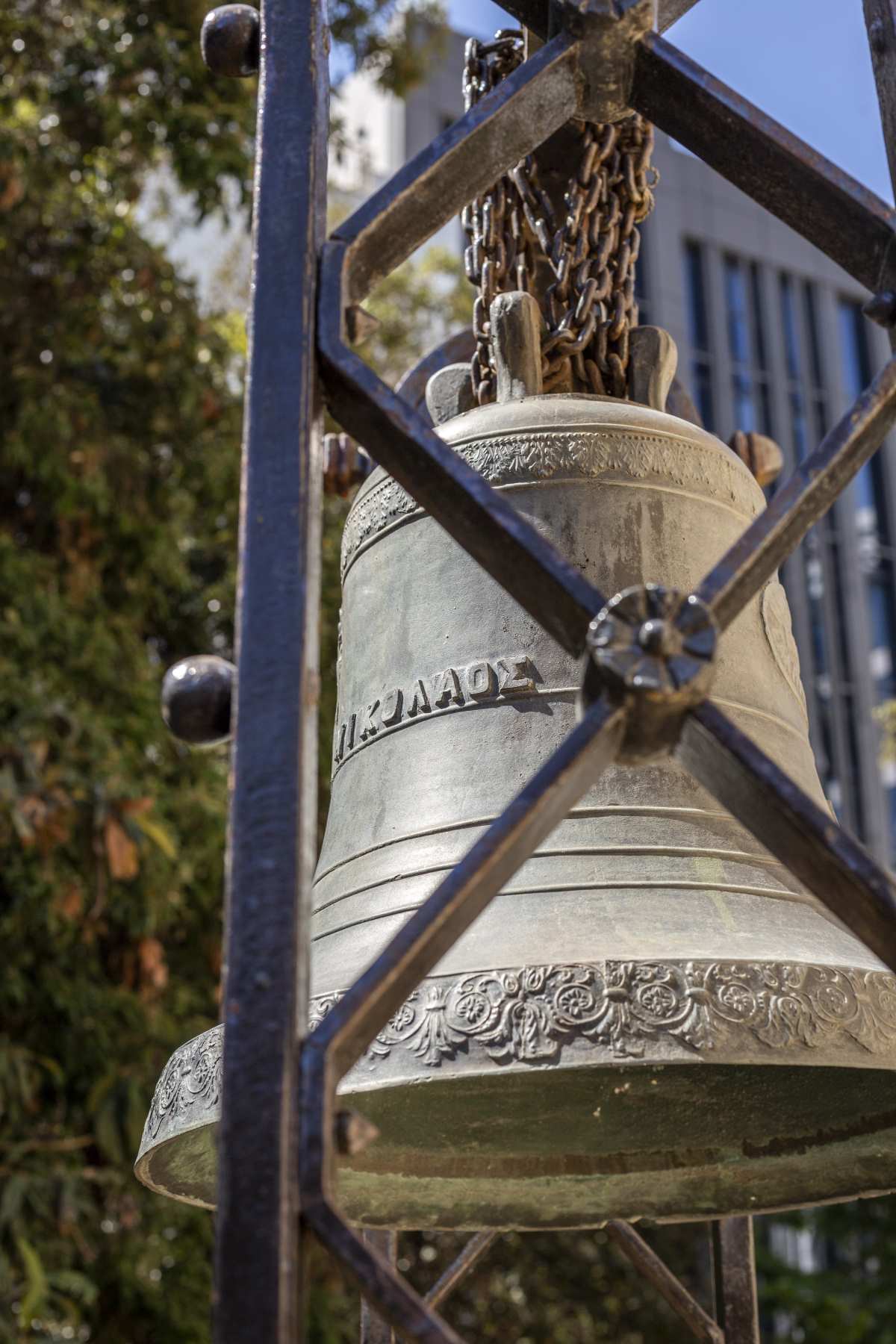
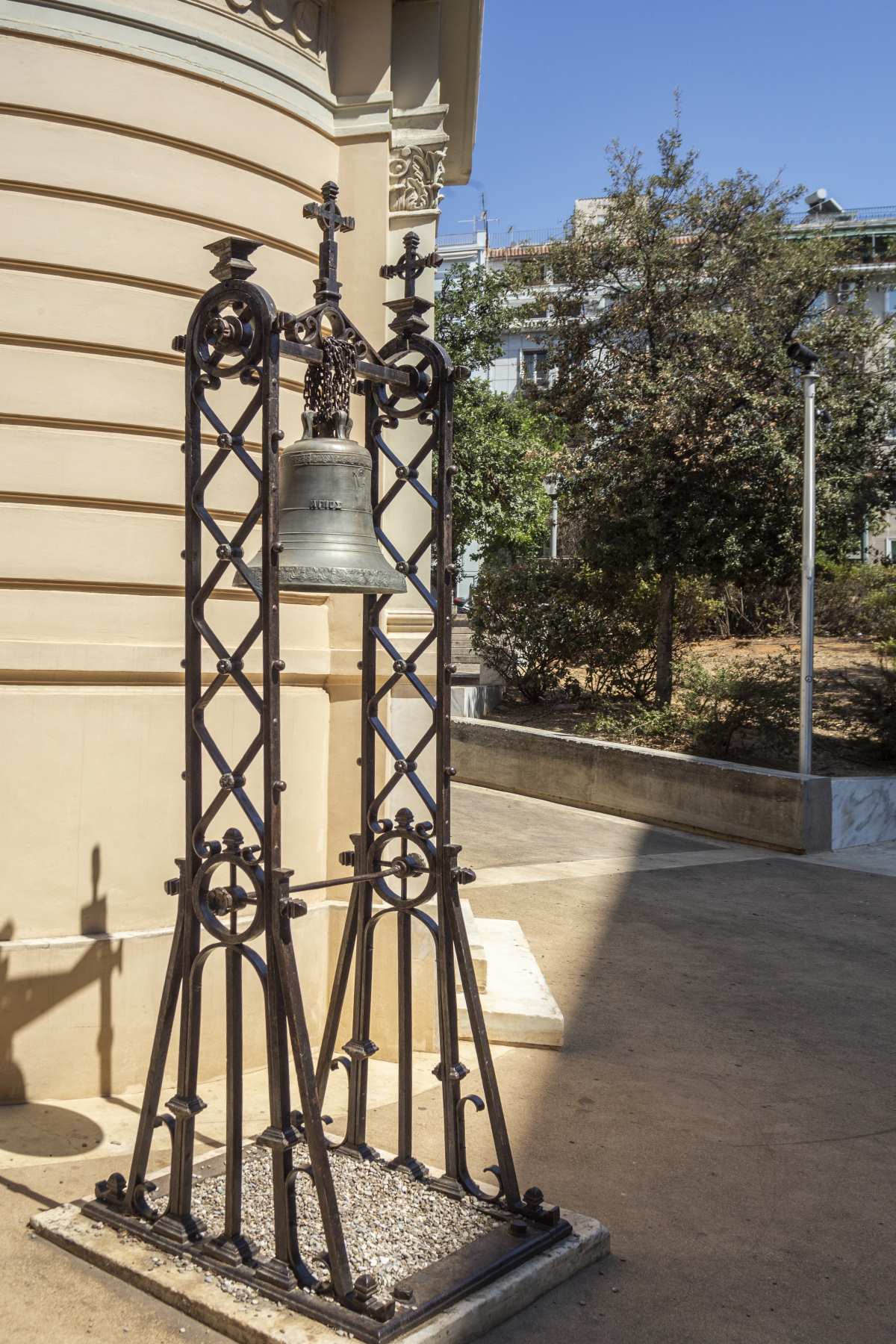
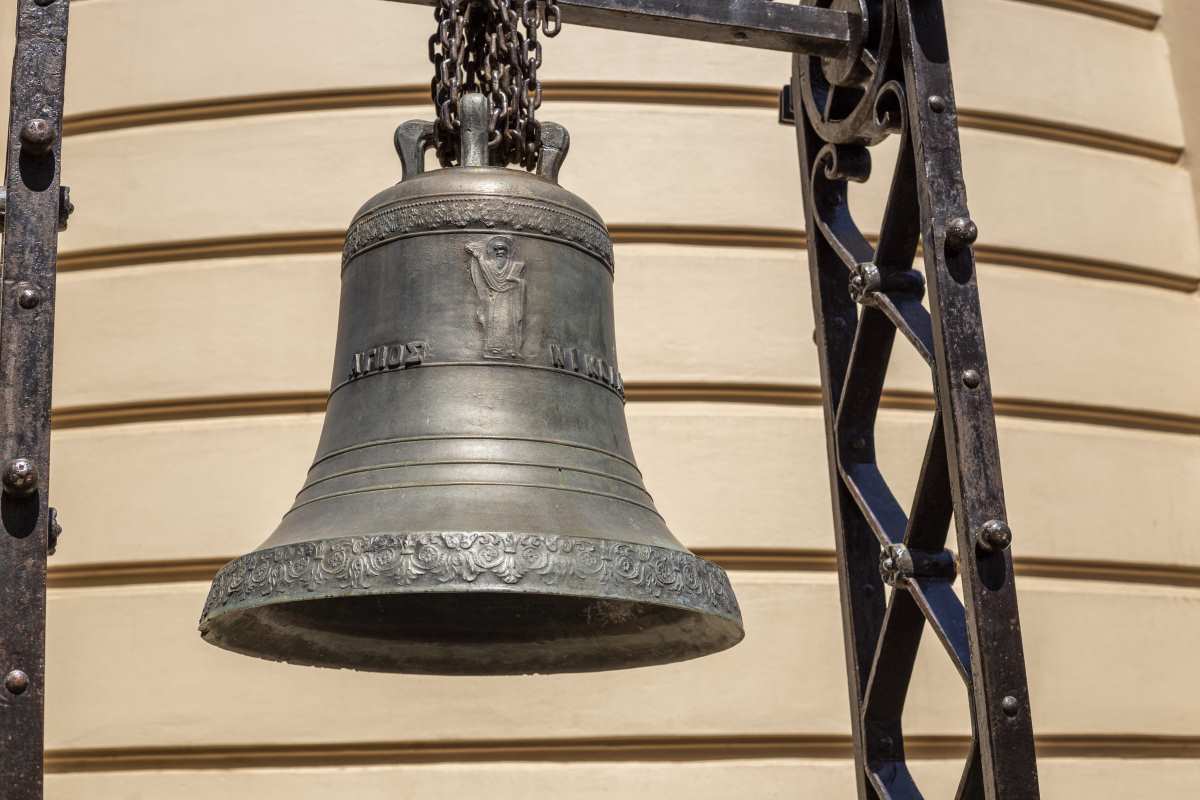
During the armed conflicts of December 1944, the mansion of the Thon estate, which had already changed ownership and use since 1921, was blown up. A few years later, in 1947, it was demolished. With the reconstruction of high-rise buildings in the area, from the mid-20th century onwards, the church of St. Nicholaos became part of an environment completely alien to its original one.

More recent research has discovered the existence of an almost exact copy of the church of Agios Nikolaos, also circular, on the estate of the late Maria Hors (Panagiotopoulos estate), the important Greek choreographer, in Salamina.
Today, the temple of St. Nicholaos Thon is illuminated from the outside, showcasing a rare monument that remained damaged and unseen for many decades.
Apart from its religious significance, the church is of great historical, social and cultural interest and is another attraction that enriches the important cultural tourist industry of Athens.
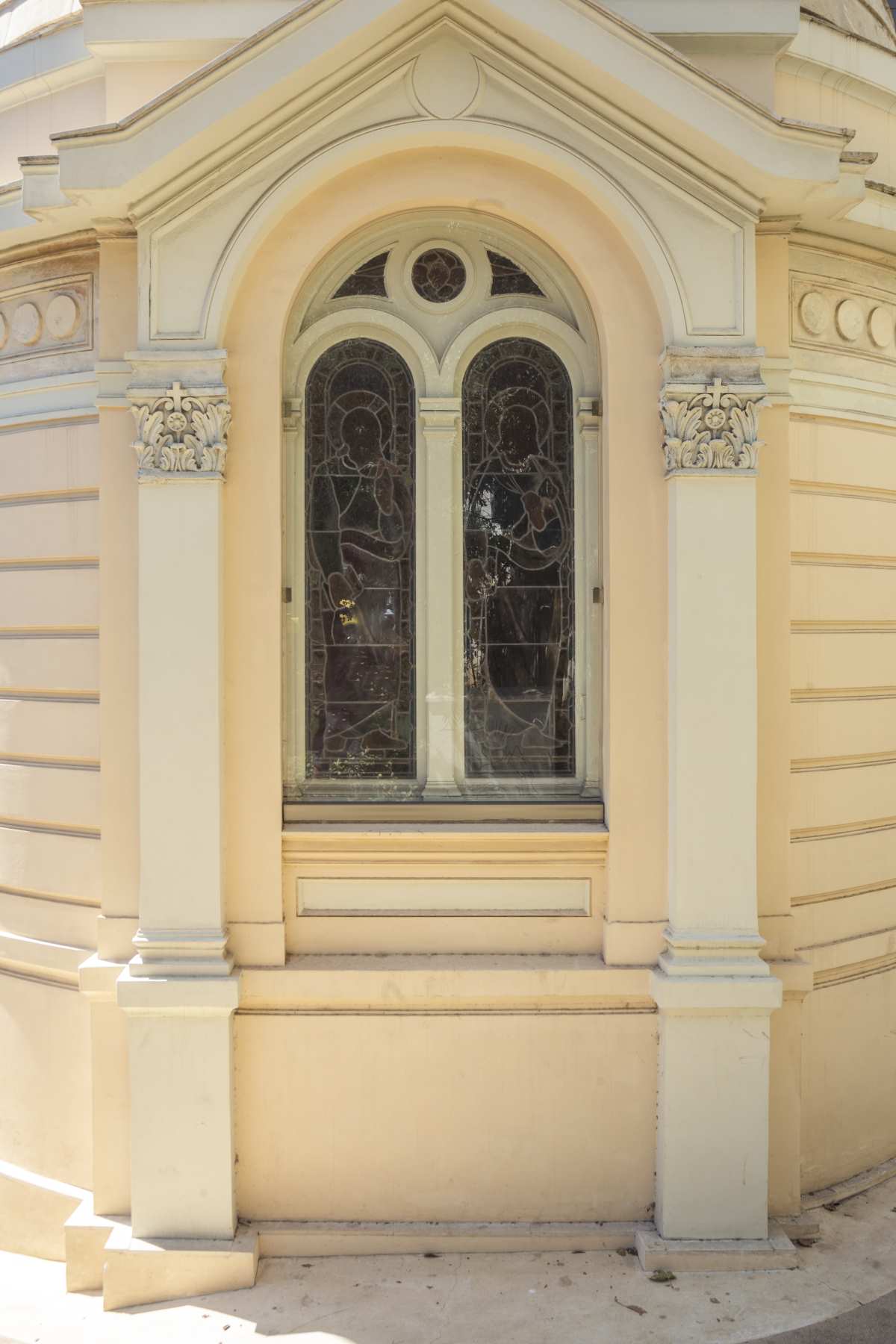
The Church of St. Nicholaos Thon was given to the citizens on the celebration day of St. Nicholaos after the completion of the restoration and aesthetic upgrading works, with funding from the Operational Regional Programme ATTICA 2014-2020 and a total budget of 550,000 euros.
The project was implemented by the Directorates for the Restoration of Byzantine and Post-Byzantine Monuments and the Conservation of Ancient and Modern Monuments of the Ministry of Culture and Sports.
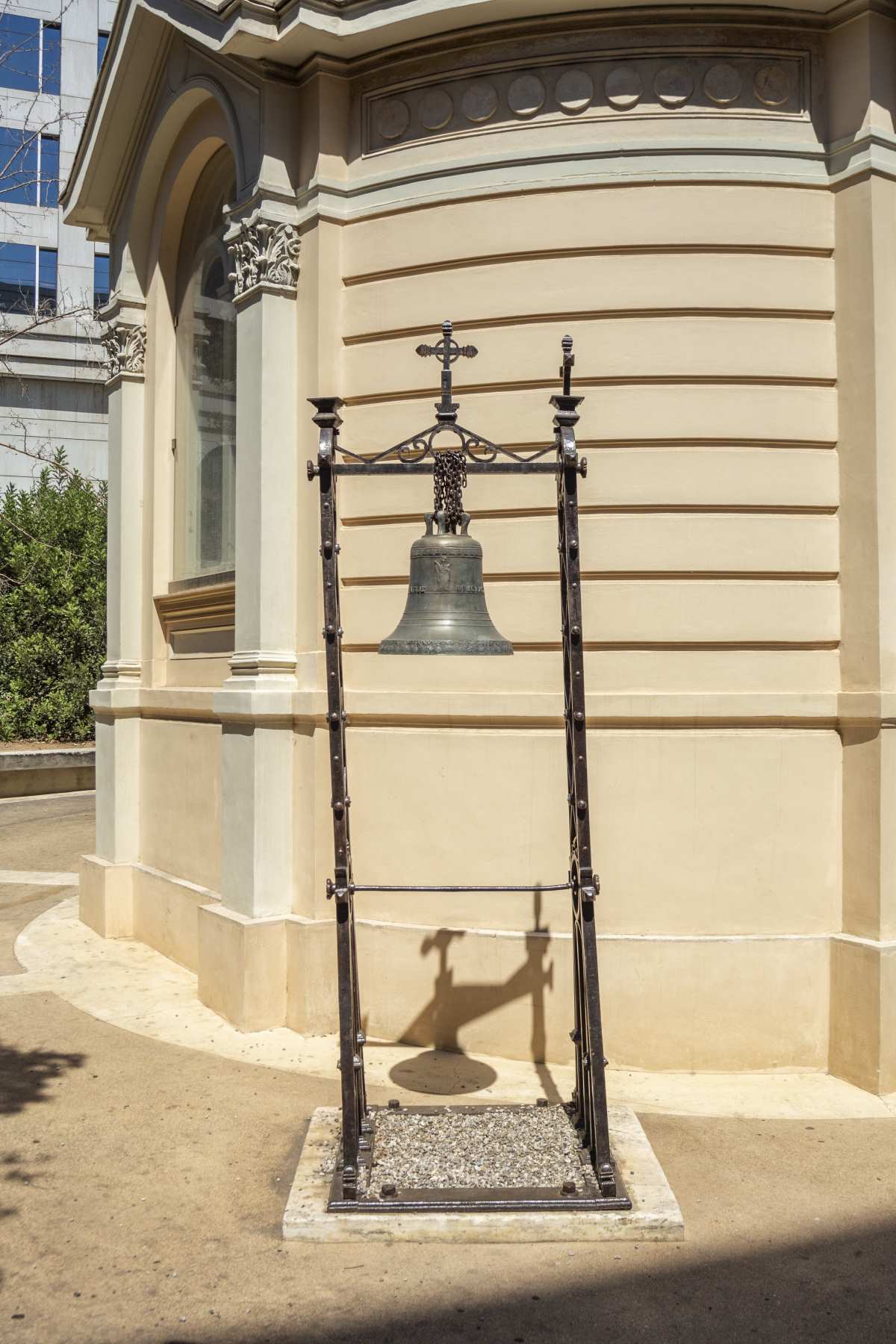
In particular, extensive conservation works were carried out in the Temple, revealing the original geometric decoration and frescoes, while the wooden windows, the door and the ornate stained-glass windows, which are believed to have been brought by Thon from Russia, were restored. At the same time, there were extensive renovation works, as well as maintenance interventions.
Photos / Video: Kostas Kapareliotis – Travelstyle.gr
